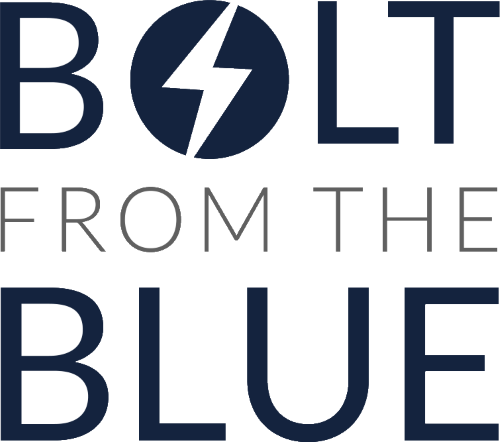Once upon a time, there was a business.
It was run by a woman who only started freelancing because she was completely unemployable. She spent a full year alternating between panic attacks and depression, despite the fact that she was apparently living the digital nomad dream on a Greek island. She spent months completely terrified that somebody was going to figure out just how inexperienced she was. Despite the fact that she was working 70 hour weeks and 28 days a month, she was making so little money that she couldn’t even pay her taxes.
And then there was another business.
This one was run by a woman who started working for herself at age 22 and made a profit from the first month. She went on to rock the digital nomad lifestyle working from a laptop on a Greek island. On her first cold sales call as a business owner, she signed a client for a 5 figure contract. She took off on trips around the world fairly regularly, just ‘cause, and despite the fact that she was working less than she ever had before, she was also making the type of money people typically share on “win” days in FB groups.
If you haven’t guessed by now, both of these stories are about me and my business. The only difference between 1 and 2? The narrative.
And as contradictory as they seem, both of these stories are absolutely, 100% true. I know I’m not alone — everybody has ups and downs. But you wouldn’t know it to look at the #smallbiz space.
Everybody’s so incredibly #blessed, and you can’t go a day on Facebook without seeing some #lovemyjob pic of a person apparently working on a beach.
We’ve unconsciously slid into a narrative of success, where every setback is immediately polished, packaged, and positioned as the “before” scene in your underdog narrative, because God forbid we recognize that sometimes things just suck, period.
Even the backlash against it has become twisted into pointlessness.
What started out as an attempt to bring some authenticity back into the online space has become an obsession with the aesthetic of authenticity, where we faux blush as we trade pictures of our peccadilloes to show just how honest and genuine we are.
And yeah, I know that it’s not always intended to be outright deceptive. It’s kind of like putting on makeup when you go to work, right? Everybody wants to put their best foot forwards.
But there’s a huge difference between choosing a flattering profile pic and choreographing every move of your public persona to give the impression of effortless success. And that difference becomes much bigger and more destructive when you do that, and then tell everybody that’s looking over your supposedly perfect life that you’re documenting your struggles and imperfections.
Because if your apparently #inspiration #lovemyjob #blessed life is a struggle … then that means that other people with actual problems are serious fuck ups.
Being surrounded by this type of bullshit means that you’re constantly struggling to create a narrative that can fit in with the “successes” you seem to be surrounded with. It makes it that much harder to get help when you need it, and that much easier to make uninformed, often bad decisions about your business. (Because if everyone else is doing well, and I’m the only one apparently struggling, then it totally makes sense to buy that 10K training program people talk about, right?)
It creates an atmosphere in which everyone is isolated, walled in by the secrets that are their unflattering bits.
And guess what? It’s completely, 100% optional.
You don’t have to be perfect. You don’t have to turn yourself into an airbrushed, censored version of yourself to run a great business. In fact, it’s when you stop trying to reverse engineer your persona into a narrative of success and actually get vulnerable that people get addicted to you.
Because it’s just so rare to see someone who’s actually standing up and being human in a space full of happy perfect people. But that’s the only way that we, as humans, can truly connect — it only works human to human. And we crave that connection.
It’s not easy. It takes bravery and honesty and a willingness to open yourself up, even when it’s uncomfortable. And it’s pretty much impossible to perfectly hit that balance between being vulnerable and respecting your readers enough not to vomit your emotions all over them or respecting them so much that you revert back into “everything’s perfect, I am robo-biz-owner” mode. You’ll screw it up sometimes. Maybe a lot of the time.
But the alternative, to turn yourself into an perfect, 2D, less than human caricature of yourself? I want more for you than that. I want more for your readers than that. And I know we can do more in this space than that.
